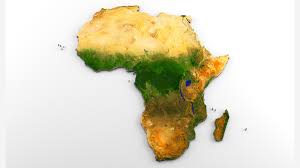
According to Google search: Africa is the world’s second-largest and second-most populous continent, after Asia in both cases.
Area: 30.37 million km²
Population: 1.216 billion (2016)
Languages: 1250–3000 native languages
Africa has the potential to be a continent riddled with first world type countries booming with state of the art technology all over. Bountiful in wealth yielding resources such as Copper, Gold, Diamonds, Cobalt, Uranium, bauxite, silver, Petroleum, and cocoa beans, it is easily the richest continent on the planet. Meaning to say, minerals and resources wise, Africa is simply “Blessed” among the blessed.
But with all these resources plus many more, what keeps the development of the richest and second largest continent at an every year low?
Many scholars in recent years have come out and spoke, some boldly and some… well, not so much; as to why Africa’s growth and development will never improve, unless a few key factors change. This article touches on just the surface of those factors as there are many reason or answers to this question. Some just require basic logic while some require one to dig a little bit deeper to understand some very important underlying factors.
“We go wrong when we don’t admit the unknowable complexity of reality, but we go dangerously wrong when we claim that one pale story—or an anthology of them—is truth”. Dean koontz, A big little life Dog Quotes
Logic-wise
Does it make sense that the world’s second largest diamond deposits are found in Congo yet it is one of the poorest countries in the world?
The Democratic Republic of Congo (DRC), is widely considered to be the richest country not only in Africa but in the world regarding natural resources. It’s untapped deposits of raw minerals are estimated to be worth in excess of U.S. $24 trillion. According to Historian Dan Snow in an article published not too long ago, Congo attributes its “poor nation” status to Slavery and corruption as well as civil Wars. Fair enough, let us not disregard the occurrence of those terrible events nor dismiss them as invalid for these were unfortunate events that cause extensive damage to any nations’ social fabric. But despite those atrocious activities, one thing that baffles the mind is how the mining and exportation of diamonds never stopped. Economic growth stops, but extraction never does. Almost as if the atrocities were meant to be conducted far from the “treasure” in any case, come rain or sunshine. My question and the question you probably have too is “at who’s benefit?”
Congo’s largest export partner is China and some European countries. As of 2011 Katanga Mining was 74.8% owned by Glencore. Glencore plc is an Anglo-Swiss multinational commodity trading and mining company. You may then wonder; Who signs such a trade deal? Who keeps signing that deal and why? I cannot tell you that, for i myself am still searching and trying to figure that part out… Can we and will we ever see that 78.4% being owned by the nation for national development?
That’s just 1 deal, and there are many others (trade deals/agreements) that are imbalanced in a similar fashion. But perhaps the imbalance appears to be like so statistically only, maybe the nation as a whole is pretty happy with the way things are.
Gold Standard?

South Africa is the second largest producer of gold and is the world’s largest producer of chrome, manganese, platinum, vanadium and vermiculite, the second largest producer of ilmenite, palladium, rutile and zirconium. It is also the world’s third largest coal exporter. It is the 2nd richest country in Africa, second to Nigeria GDP wise. Most of the minerals i have mentioned are mined and exported to First world countries were they are then manufactured into finished products that fetch a higher per unit price than a gram of the raw material.
If manufacturing plants were built and located within Africa, would that not then create economic development in areas of increased employment among many other benefits?
Ok perhaps these precious stones and valuable minerals are just meant to be forgotten based on the level of sensitivity both politically and economically. And so let’s do that shall we? Let us focus on something else less sensitive,But only for this article! Let us move on to a lesser controversial precious resource like ‘coffee’. Personally, I am a coffee lover, not an addict but just a coffee lover. My favourite coffee beans come from the Ethiopia or Kenya, so i did some little research on “my favourite beverage.

Did you Know?: Ethiopia and Uganda are the 5th and 8th largest coffee producers in the world? Uganda produced 288,000 metric tonnes in 2019, while Ethiopia produced 384,000 metric tonnes in the same year.
The problem? Neither of these two countries process and export coffee as a finished product.
Fun fact: You can buy Nescafe coffee in Africa as an imported product made by coffee beans found in either one of these countries. Nescafe is Swiss.
My Pitch?: Let’s have a coffee manufacturing plant or plants in Africa for Africa.
Did you know: The Ivory Coast and Ghana are by far the two largest producers of cocoa: together they cultivate more than half of the world’s cocoa. These two are followed by other cocoa producing countries like Nigeria and Cameroon. But guess what? The Ivory Coast, Ghana, Nigeria and Cameroon are among the world’s poorest countries.

Below is a table of the Net sales of the world’s top 4 largest chocolate companies in the world and their net sales figures for the year 2019.
| Rank | Company/country | Net sales (2019) |
|---|---|---|
| 1 | Mars Wrigley Confectionery (USA) | 18 US$ Billion |
| 2 | Ferrero Group (Luxembourg / Italy) | 13 US$ Billion |
| 3 | Mondelēz International (USA) | 11.8 US$ Billion |
| 4 | Meiji Co Ltd (Japan) | 9.7 US$ Billion |
The chocolate industry is a multi-billion dollar industry that is supported mainly by cocoa grown in Africa, yet Africa’s debt to International Monetary fund (IMF) as of 2019 was approximately 100 US$ Billion ( unfortunately that’s a figure from an IMF affiliated site – credibility at your discretion) and 30 US$ Billion to China as of 2016.
However it is important to note that those debt figures are collective figures of the whole of Africa at a time and it is only fair I make known the fact that the amount is not shared equally as there are other countries that are less indebted to these lending organizations than the others.
So what is it that makes such a resource rich region the “poorest”?
Is it because of Slavery?
Slavery, a very delicate subject among both African and non- african parties, has been largely associated with Africa’s growth or in this case lack off. Not Only was the act inhumane but it left Africa’s ego bruised – my opinion. We could say then that aside from plucking out the strong men and women of the region against their will, it left the egos of many once strong and proud Africans shattered, families broken and the whole social fabric of the affected parts of the continent in tatters. These are just a few of the negative impacts of slavery on Africa, but the biggest impact (In my opinion) is the mentality change it brought about in most that makes one believe “they were only created for labour and to be a labourer” their whole life!
That has to change if Africa is to ever claim it’s rightful place on the world stage.
“Many other countries were victims of colonisation, but it is Only African countries that remain fixated on the effects of colonialism decades after colonialism ended.”
Is it because of Colonialism?
In a TedxTalk segment, Dr Nkosana Moyo once said; “Many other countries were victims of colonisation, but it is Only African countries that remain fixated on the effects of colonialism decades after colonialism ended.”
Thus to say, (in my own interpretation) that regardless of how much time goes by, African countries will still attribute their poverty state to the fact that they were colonised before. However with regards to certain countries this may be very true as till this very day, their former colonial masters still have “rights” to the resources from those countries and some still pay taxes to their former colonial masters! The question now is, why do those agreements still exist today? Agreements that were built to destroy and imporvarise rather than build and assist in growth for both parties.
Is it because of corruption?
Corruption is rampant in most if not all the countries worldwide. It’s the dishonest, fraudulent behavior perpetuated by those in power, politically this is by those who we elect into office to better our lives and communities but rather tend to focus on their own selfish needs, i could go on and on here. Is Africa riddled by corruption? Yes, very much so in fact. Just like the rest of the world. Corruption has crippled many African communities and eradicating it completely is something that will be …very had, however not impossible. I can tell you how but i will be disclosing my “election manifesto too soon”.
Or is it Western influences?
Please watch the video below.
I will leave the conclusion up to you! But we are truly in this together.
As always, i would love to hear your views and opinions on these and other matters, so kindly utilize the comment section below.


Well done Gerald..We must play our part in developing our Beautiful continent.Keep up the good work!
LikeLiked by 1 person
Thank you Carol! And you’re so right hey, we must play our part in developing our beautiful continent!
LikeLike